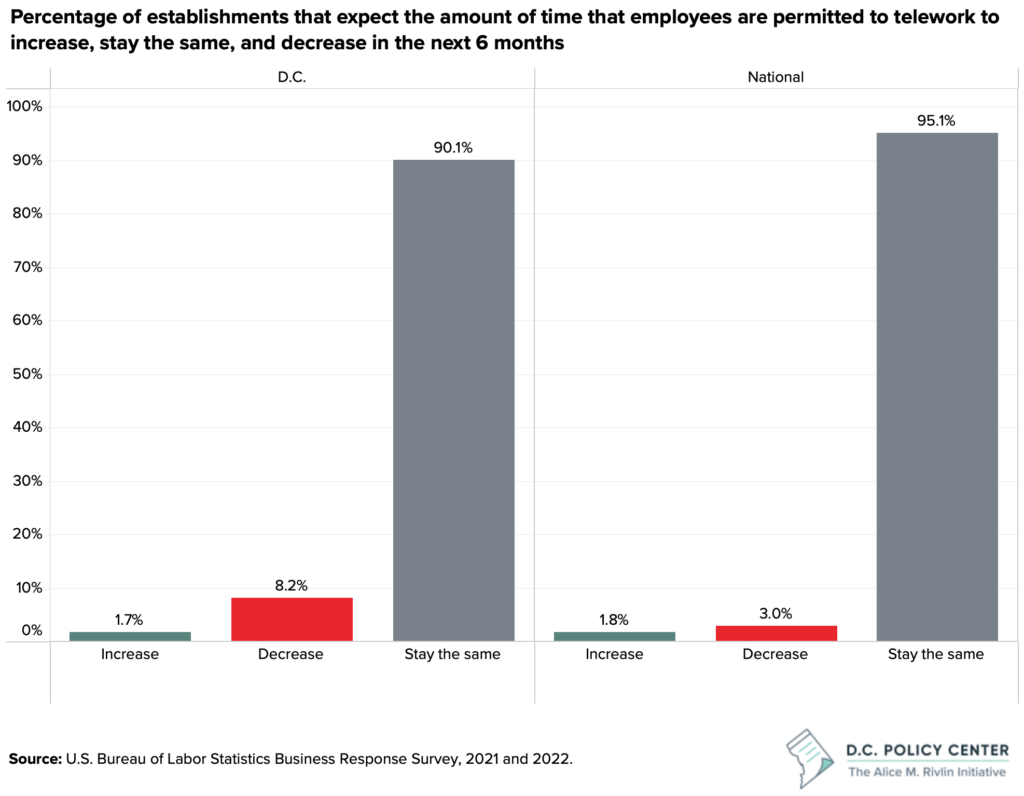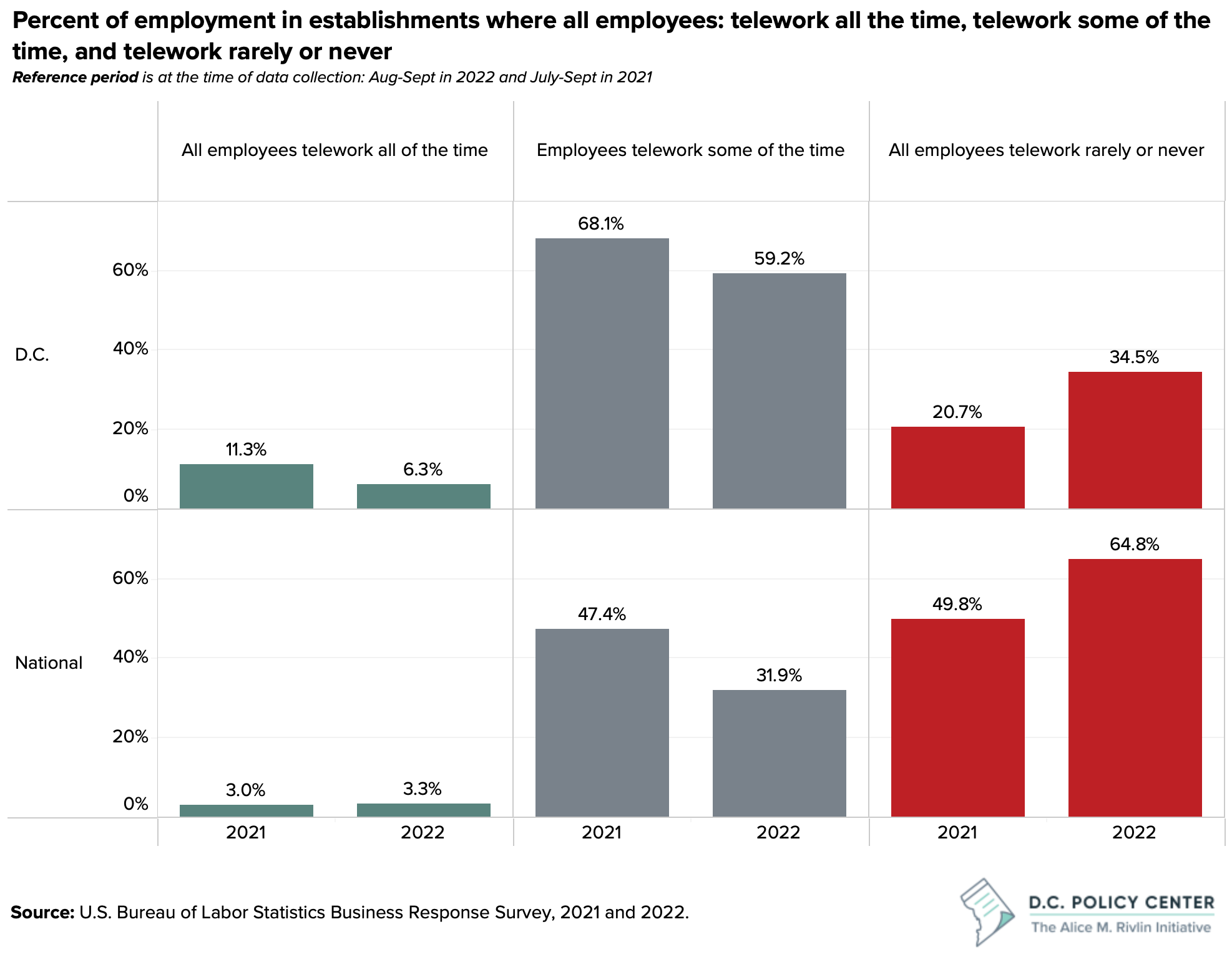Data from the 2022 Business Response Survey—a survey administered by U.S. Bureau of Labor Statistics (BLS) to provide timely information to assess the impact of specific events—was released last week. As we begin to emerge from the pandemic, establishments continue to allow telework in D.C.—more so than the rest of the U.S.1
Nearly a quarter of D.C.’s establishments allow all employees to telework full-time and a third of D.C.’s establishments allow their employees to telework some of the time. Though teleworking seems to have slowed down compared to 2021, the share of establishments that allow at least some remote work is about 2x higher in D.C. than the rest of the U.S.
In D.C., this impacts a large share of the workforce. The establishments that permit at least some remote work employ 65.5 percent of D.C.’s workers—6.3 percent of whom are employed by establishments that allow remote work all the time.
Across the U.S., remote work has a much smaller reach on the workforce. In the U.S., establishments that permit at least some remote work only employ 35.2 percent of workers. Most likely, remote work impacts a greater share of D.C.’s workforce relative to the nation because remote work is most common in industries with better pay and highly-educated workers.2 As such, D.C. has a high concentration of workers in remote eligible jobs.
But, despite the high prevalence of remote work in D.C., it is possible that remote work policies are becoming more stable. At the time of the BLS survey, 90 percent of businesses in D.C. reported that in the next 6 months, they expect the amount of time that employees are permitted to telework to stay about the same. And, 8.2 percent reported that they expect a decrease. This implies that telework will stabilize at a higher level than pre-pandemic, but hybrid arrangements will be most common.

Data note
The questionnaire for the 2022 Business Response Survey can be found here.
Questions pertaining to the data presented above are:
- In a typical week, what percent of your employees CURRENTLY telework in the following amounts? These answers should total to approximately 100%. (This is a repeat of a question in the 2021 survey, which can be found here.)
- All the time (remote employee): ____
- Some of the time (some work hours or days via telework): ____
- Rarely or never (rare occasions of telework, or full-time on-site) : ____
- In the next 6 months, does this location expect the amount of time that employees are permitted to telework to…
- Increase.
- Decrease.
- Stay the same.
Responses to the question on current levels of telework were restructured by BLS. In 2022, restructuring served to facilitate comparability of results to the 2021 survey. Due to variations in responses, rather than presenting numeric results, BLS presents results as proportion of establishments where all employees telework all the time, all employees telework rarely or never, and some employees telework some of the time. Results are for respondents who entered 100% of employees telework all the time, 100% of employees telework rarely or never, and the remainder of respondents, with these three categories totaling approximately 100% with rounding. For more information on data editing and the survey samples, see the 2022 survey technical note and the 2021 technical note.
Endnotes
- U.S. Bureau of Labor Statistics Business Response Survey, 2021 and 2022
- McConnell, Bailey and Sayin, Yesim (2022). “Remote work and the future of D.C. (Part 1): How is remote work changing the geography of work in the District of Columbia?” D.C. Policy Center, Washington, D.C.
